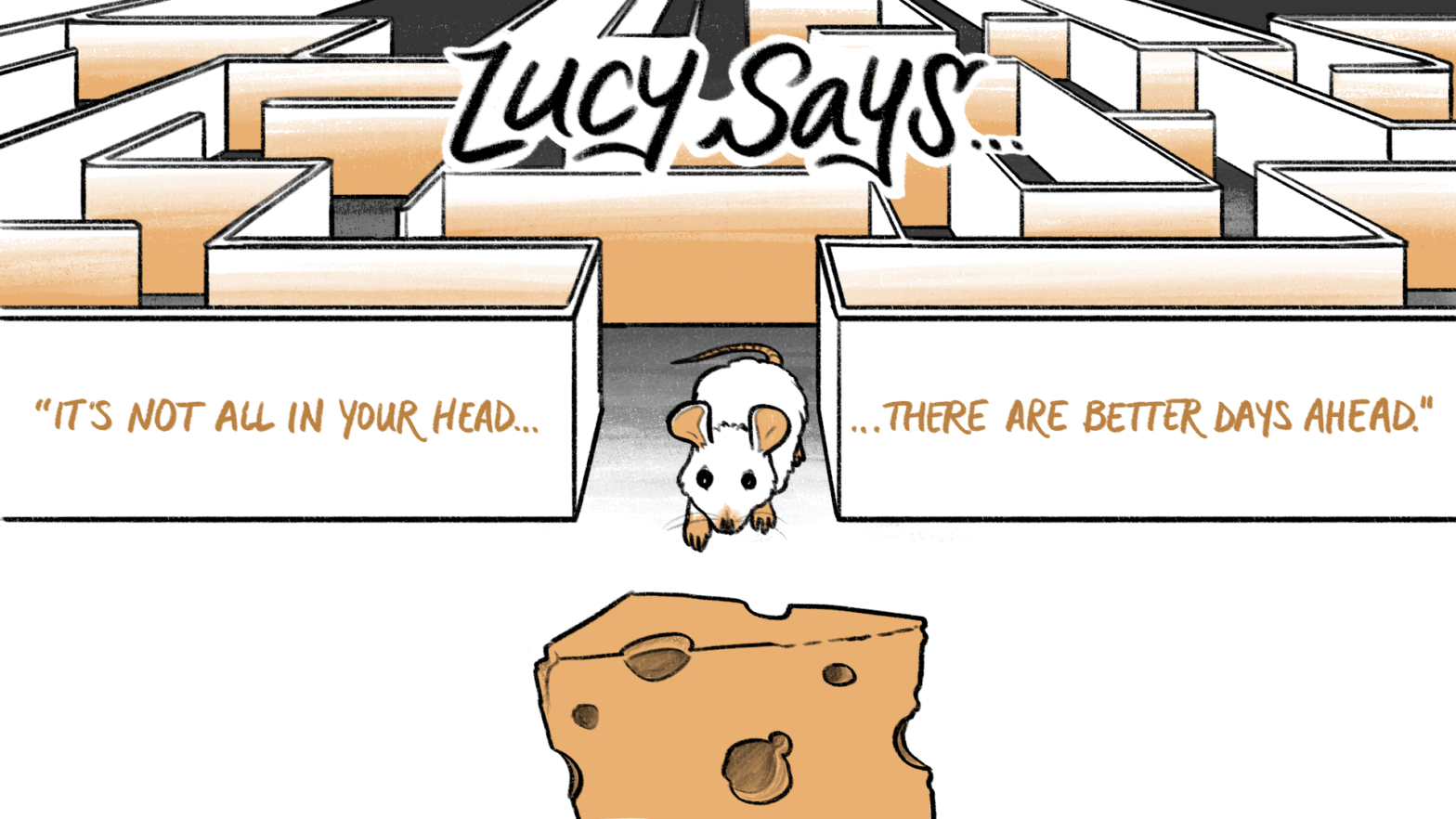Love, Lucy is the New School Free Press’ weekly advice column, where writers anonymously share thoughtfully researched solutions to your questions about life. Send submissions through Love, Lucy’s official Google Form, and you might hear back from Lucy herself.
Dear Lucy,
I have anxiety. People just don’t seem to understand that this is something I can’t just “get over.” How do I set my boundaries and make people understand that I’m not just “shy?”
From,
Miss Understood
Dear Miss Understood,
As someone who has constantly been told that I’m simply “overreacting” and that it’s “all in my head” when it comes to things I’m worried about, I totally feel your frustration. Anxiety isn’t something that goes away overnight (or sometimes even at all). And while that may sound like discouraging news, there are still plenty of ways to combat it or at least make it easier to deal with.
It’s important to acknowledge that anxiety is to be expected in certain situations. It’s typical to be anxious about giving a presentation, going to an interview, making an important decision, etc. But if that anxiety becomes a frequent occurrence that hinders you from doing everyday activities, then it might be a sign of a more significant condition. NOTE: This is in no way a formal diagnosis. I highly recommend discussing this with a doctor or therapist for a proper diagnosis and treatment options.
“Over 40 million adults in the U.S. (19.1%) have an anxiety disorder,” according to the National Alliance on Mental Illness. So know you are not alone if you are or have been diagnosed.
If you have been formally diagnosed with an anxiety disorder, this article by the Cleveland Clinic shared a helpful list of general ways you can take care of yourself. Stress management, support groups, education, and limiting/avoiding caffeine are some good places to start. But when in doubt, speak to a professional. Google is not a doctor.
Acknowledging that you need to set boundaries for yourself is one of the first steps to making anxiety more manageable. I know that can sound intimidating, especially if you’re a people pleaser like myself, and that’s because a common misconception of creating boundaries is that it’s selfish. But if anything, creating boundaries actually allows you to be more selfless. If you know how to care for and look after yourself, you’ll be better equipped to take care of others.
Author and life coach Melissa Urban told The Guardian her definition of boundaries were “‘Limits you set around how people are allowed to engage with you in a way that keeps you safe and healthy, and improves the relationship.’”
So don’t worry, setting boundaries is not a selfish thing. If people try to convince you otherwise, then I highly suggest reevaluating those relationships and in turn, setting boundaries with them. These boundaries will look different for everyone, but some good places to start are learning to say no, expressing your feelings and needs to others, and most importantly, addressing problems directly. If you want further guidance on a good friendship, I urge you to read another advice letter I wrote here.
Now, I do want to acknowledge that addressing problems head-on and expressing how you feel can be anxiety-inducing. I know I personally hate conflict and do my best to avoid it at all costs. And while it’s always good to be diplomatic and respectful, you shouldn’t have to bottle up your emotions just to keep the peace. Ever heard the saying, “Don’t light yourself on fire to keep others warm?” Yeah, don’t do that.
Psychology Today shared a variety of ways to build better boundaries. However, one that I want to emphasize is learning how to set boundaries in advance. A good example is learning how to set boundaries at work: “If the boundary you’re setting is around your working hours, let your boss know that you can’t work past a certain time each day.”
If you’re a workaholic like I am, it can be increasingly difficult to not only set this boundary, but live up to it. However, this is a muscle that’s developed over time. The ultimate key is being patient not only with others but yourself too. If you find yourself allowing others to violate your own boundaries every now and then, it’s okay! Just try to be conscious of it in case it happens again.
To revisit your point about anxiety not being something you can just “get over,” I highly suggest having a conversation with those people who are telling you to get over it. Let them know that anxiety isn’t something that magically goes away. Tell them that you don’t appreciate the way your feelings are being brushed off. People won’t know if they’re hurting you unless you tell them. Now, if you tell them and this behavior persists, reevaluate your relationship and ask yourself if spending time with them is really necessary.
Another good thing about being assertive is that you prove that you’re not shy. It tells others that you’re not someone that can just be walked over. According to Mayo Clinic, “Being assertive shows that you respect yourself because you’re willing to stand up for your interests and express your thoughts and feelings. It also demonstrates that you’re aware of others’ rights and willing to work on resolving conflicts.” This is another muscle that’s strengthened over time, and with practice, you’ll get the hang of it.
If you take away anything from this piece, I hope it’s that you shouldn’t have to justify yourself to anyone. You don’t owe anyone an explanation. Just admitting that you have anxiety can be nerve-racking on its own, but if you do choose to go this route, please know that you shouldn’t feel required to educate others who don’t understand it. The people who truly care about you will love you as you are and remain respectful of your needs.
Life is too short to live with people who don’t respect you or your feelings. And trust me, it’s not all in your head, there are better days ahead.
Love,
Lucy








Leave a Reply